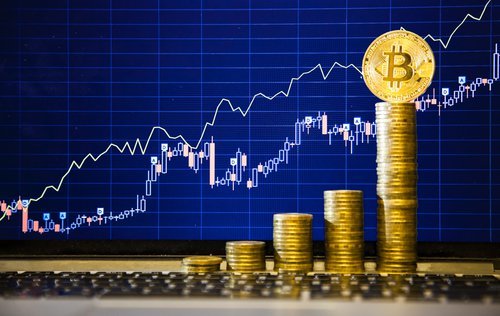Maybe A Bitcoin ETF Could Cause An Explosion

Exchange-Traded Fund, or, an ETF could be kick that Bitcoin needs to make it fly once again. In light of the recent disaster, Bitcoin investors need to seek some comfort in knowing that they might at least get their investment back at some point.
At present, I often wonder if anybody even wants to make any profit on Bitcoin now, of course, this would be a bonus (and its inevitable eventually, I think) but I’m sure at the front of every investors mind is the utopian image of getting their money back, baby-steps before a serious reinvestment so to speak.
Many people are starting to suggest that an ETF could be the way forward for Bitcoin and inevitably the rest of the market, justification for this comes from the establishment of an ETF on Gold a few years ago. 2004 to be exact.
When the Gold ETF launched in 2004, the value per ounce of Gold multiplied five-fold. This is because it allowed investors to start investing large amounts of money into the market once again.
Before I continue, lets talk about what an ETF is. As I have mentioned, ETF stands for Exchange-Traded Fund, the definition of this is perfectly accounted on Investopedia (https://www.investopedia.com/terms/e/etf.asp).
“An ETF is a type of fund that owns the underlying assets (shares of stock, bonds, oil futures, gold bars, foreign currency, etc.) and divides ownership of those assets into shares. The actual investment vehicle structure (such as a corporation or investment trust) will vary by country, and within one country there can be multiple structures that co-exist. Shareholders do not directly own or have any direct claim to the underlying investments in the fund; rather they indirectly own these assets.”
Yesterday, YouTuber Louis Thomas uploaded a video discussing the ETF theory in some intellectual depth, you can see his video here-
Thomas highlights first that the jump in the price of Gold as a result of the Gold ETF could just be down to a coincidence or causation, but also points out that the timing of the ETF and the Gold price rise does need to be considered. Rightfully, in 2004 many authors and journalists put the price rise down to the ETF as a result of it making access to gold investment easier. Thomas draws a number of parallels between the Gold ETF and the potential for a Bitcoin ETF.
Like Bitcoin, Gold had many storage issues, delays in transactions and a wealth of uncertainty, the Gold ETF was developed to alleviate this and essentially take the leg work out of Gold investment, so in theory this could be applied directly to Bitcoin since the same agony exists within the currency and its investment structure.
A Bitcoin ETF would make Bitcoin investment a much easier process, a formula that most people agree needs to be fortified before international cryptocurrency adoption can occur however, and as Thomas mentions just because some parallels exist between Gold and Bitcoin, it doesn’t mean that a Bitcoin ETF would have the same effect as the Gold ETF did back in 2004. We have to remember that 2004 was a different climate, currency was different, technology was different and ultimately, many other extraneous variables where indeed very different.
It is wrong to write off the idea of an ETF however, especially with many investors clutching at straws, if it looks to present a promising way out of the red then why not?
Sadly, its not something that could just run as a social experiment to test the water to see if it would work, an ETF on Bitcoin would change the dynamic of Bitcoin forever, if it didn’t work then it could possibly lead to the end of Bitcoin for eternity, but, if Thomas is right in detecting the aforementioned parallels, maybe a Bitcoin ETF is the kick that Bitcoin needs in order to make it fly once again.